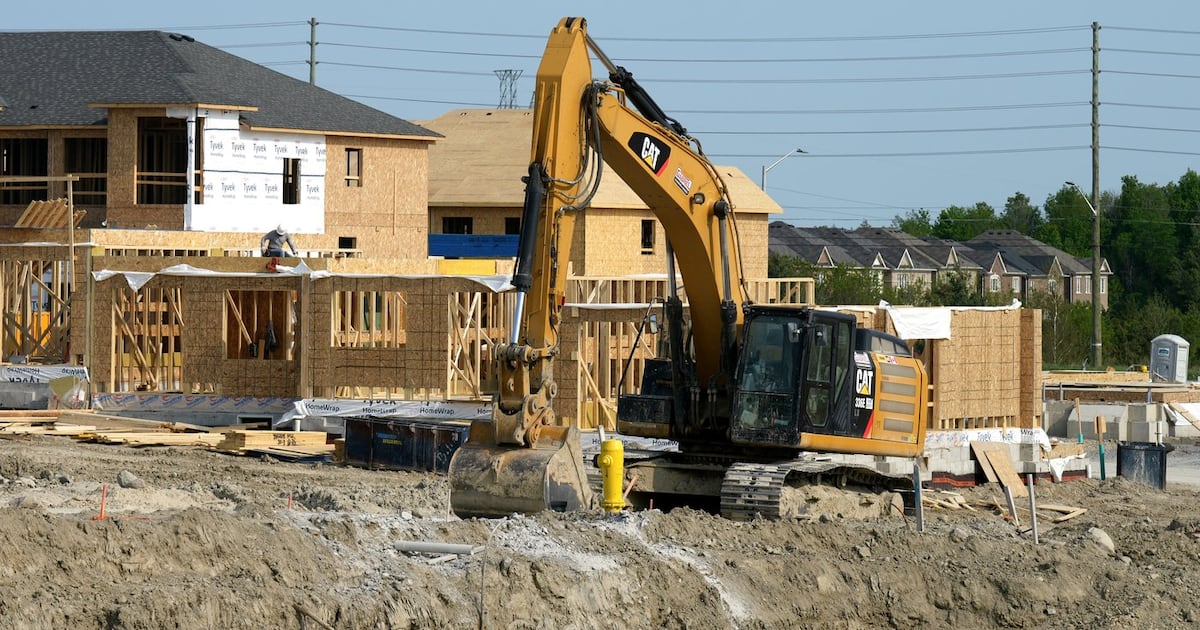Top Stories
Strong Mayor Powers Fail to Boost Housing in Ontario, Report Warns

URGENT UPDATE: A new report reveals that the strong mayor powers implemented across 216 municipalities in Ontario have not delivered the expected surge in housing construction, raising serious concerns among civil servants. Just three years after their introduction, the anticipated benefits are overshadowed by significant downsides, according to anonymous interviews with chief administrative officers (CAOs) from 32 Ontario cities.
The report highlights a troubling trend where previously apolitical city staff could become overly influenced by partisan mayors who hold the power to hire and fire them at will. “It’s stress built upon stress built upon stress,” stated Sabine Matheson from StrategyCorp, the firm conducting the survey. “We’re not seeing much upside, but the potential risks are rising, especially as municipal elections approach.”
Mayors now have the authority to override city council decisions on provincial priorities, yet the provincial data paints a grim picture: of the 50 largest municipalities, only 15 have surpassed their housing targets for 2024. 27 cities are lagging behind, indicating that the strong mayor powers may not address the underlying economic issues hindering housing development.
Matheson emphasizes that “the big struggle that’s in the way of getting housing built right now has got a lot more to do with the economic fundamentals than it has to do with any quirks of decision-making inside city halls.” This growing concern could lead to a troubling new norm where incoming mayors dismiss senior staff, undermining civil service independence and costing municipalities significantly in severance payments.
Stephen Blais, Liberal MPP for Orléans, criticized the initiative, stating, “If the premier’s intent was truly about building homes and infrastructure faster, he would see that it hasn’t actually delivered. He would put the strong mayor powers on hold and evaluate why that might be.”
In response, a spokesperson for Housing Minister Rob Flack insisted that cities are responsible for meeting their housing targets. “Mayors are elected and have the responsibility to deliver results for their community,” said Alexandra Sanita. She noted that some municipalities are effectively using their strong mayor powers to expedite housing projects, pointing to St. Catharines prioritizing housing applications, Ajax unlocking over 2,400 new units, and Brampton advancing 27 affordable housing units with Habitat for Humanity.
As the situation develops, the implications of these findings could significantly affect the political landscape and housing strategy across Ontario. Officials are urged to reassess the effectiveness of the strong mayor powers as the pressure mounts for tangible results in housing construction.
This report serves as a critical reminder that while the intention behind strong mayor powers may be to streamline housing development, the realities on the ground suggest a more complex and concerning picture.
-

 World2 months ago
World2 months agoScientists Unearth Ancient Antarctic Ice to Unlock Climate Secrets
-

 Entertainment2 months ago
Entertainment2 months agoTrump and McCormick to Announce $70 Billion Energy Investments
-

 Lifestyle2 months ago
Lifestyle2 months agoTransLink Launches Food Truck Program to Boost Revenue in Vancouver
-

 Science2 months ago
Science2 months agoFour Astronauts Return to Earth After International Space Station Mission
-

 Sports2 months ago
Sports2 months agoSearch Underway for Missing Hunter Amid Hokkaido Bear Emergency
-

 Technology2 months ago
Technology2 months agoFrosthaven Launches Early Access on July 31, 2025
-

 Politics4 weeks ago
Politics4 weeks agoUkrainian Tennis Star Elina Svitolina Faces Death Threats Online
-

 Politics2 months ago
Politics2 months agoCarney Engages First Nations Leaders at Development Law Summit
-

 Entertainment2 months ago
Entertainment2 months agoCalgary Theatre Troupe Revives Magic at Winnipeg Fringe Festival
-

 Entertainment4 weeks ago
Entertainment4 weeks agoLeon Draisaitl Marries Celeste Desjardins in Lavish Ceremony
-

 Top Stories1 month ago
Top Stories1 month agoSuspect Identified in Maple Ridge Tragedy; Community in Shock
-

 Health2 months ago
Health2 months agoCMS Proposes New Payment Model to Enhance Chronic Disease Care





















